On April 29, marking the third anniversary of General Secretary Xi Jinping’s visit to Renmin University of China (RUC), the “Seminar on High-Quality Development of Publishing in the New Era & Celebration of the 70th Anniversary of China Renmin University Press” was held to implement General Secretary Xi Jinping’s political requirements and ensure their solid grounding and fruitful outcomes. During the event, two major academic collections were officially released: the “Research Library on the Systematic and Theoretical Study of the Party’s Innovative Theories” and the “Research Library on China’s Independent Knowledge System.” Both collections were compiled under the leadership of Zhang Donggang, Chair of the University Council of RUC and Lin Shangli, President of RUC,the editors-in-chief, who together coordinated renowned academic experts from within and outside RUC to complete the first phase of the project.
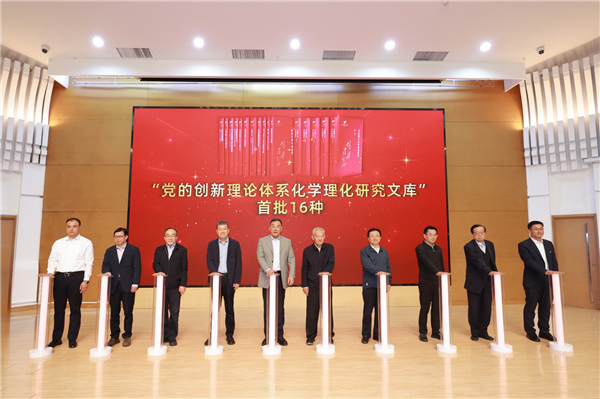
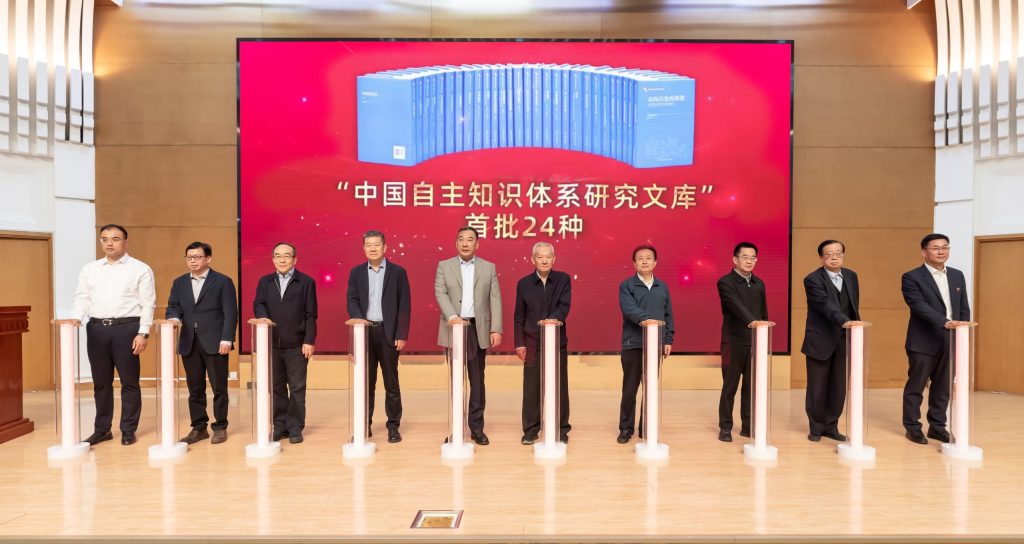
The first segment of the seminar featured speeches by Zhang Donggang, Chair of the University Council of RUC,Wu Shulin, Chairman of the Publishers Association of China, Yan Xiaohong, Chairman of the Copyright Society of China, Sun Shoushan, Chairman of China Audio-Video and Digital Publishing Association, Guo Yiqiang, President of China Book Review, Zhang Huaihai, Deputy Director of the Publishing Bureau of the Publicity Department of the CPC Central Committee and Shan Guojie, Deputy Director of the Department of Social Sciences under the Ministry of Education. Over a hundred representatives from domestic publishing houses, university presses, and media attended.
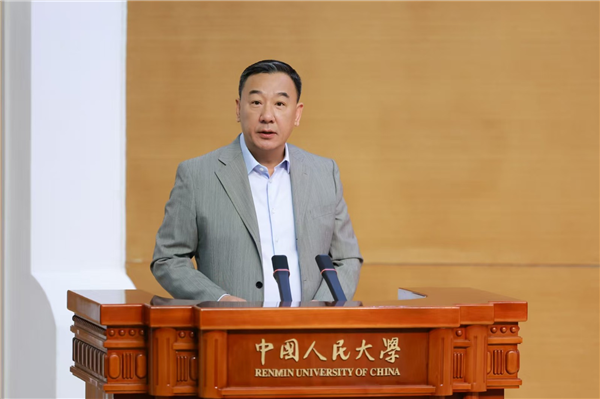
In the second segment, Li Yongqiang, Chair of the Press Council and Chairman of the Board, China Renmin University Press (CRUP), made a report on the seven-decade development and achievements of CRUP. Industry experts delivered keynote speeches, summarizing experiences in high-quality publishing development and exploring solutions to related challenges. Key leaders from teaching, research, and administrative departments of RUC, as well as representatives from more than 30 media outlets, including People’s Daily, Xinhua News Agency, and Guangming Daily, attended the seminar.
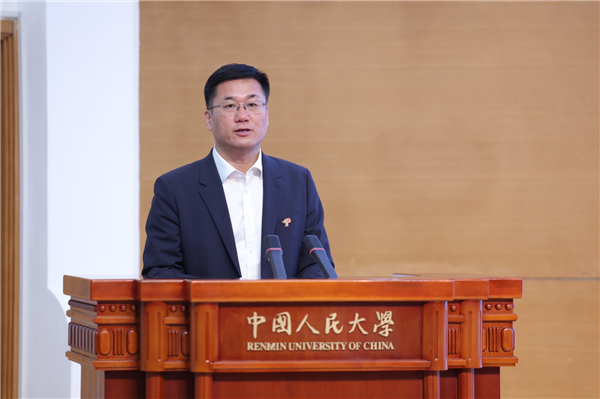
The “Research Library on the Systematic and Theoretical Study of the Party’s Innovative Theories” is a landmark academic project organized by RUC, offering in-depth interpretations and research on the systematic and theoretical dimensions of the Party’s innovative theories. Sixteen titles were planned for the first phase. In the new era of socialism with Chinese characteristics, strengthening this research deepens the understanding of the scientific essence, core principles, and logical coherence of the Party’s innovative theories, enhancing the precision and effectiveness of practice. It also fosters ideological consensus, elevates China’s international discourse power, and strengthens national cultural soft power. This endeavor provides robust theoretical support for the Party and the nation’s development, representing both a necessity for advancing contemporary Chinese Marxism and a solemn responsibility for scholars in philosophy and social sciences.
The “Research Library on China’s Independent Knowledge System” is a comprehensive publishing initiative showcasing China’s self-developed knowledge framework, with twenty-four high-quality works published during the first phase. Rooted in China’s rich traditional culture and disciplinary heritage, the collection addresses critical theoretical and practical issues in Chinese modernization. Guided by the Party’s innovative theories, it advances knowledge, theory, and methodology in philosophy and social sciences, distilling valuable experiences and theoretical breakthroughs from China’s socialist practices. As an open-ended project, it will continue to produce pioneering research, driving the high-quality development of philosophy and social sciences with Chinese characteristics, contributing intellectual achievements to the nation’s modernization, and offering Chinese theory and wisdom to global civilization progress.
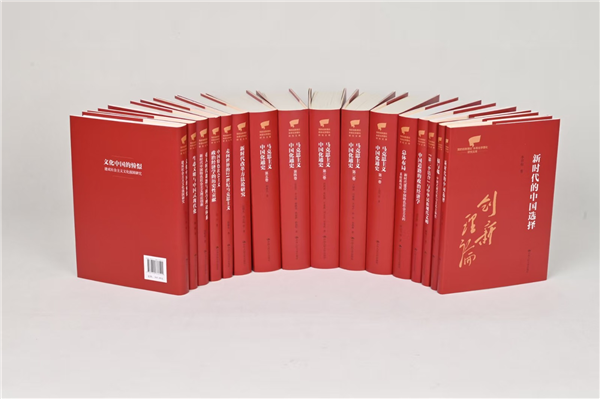
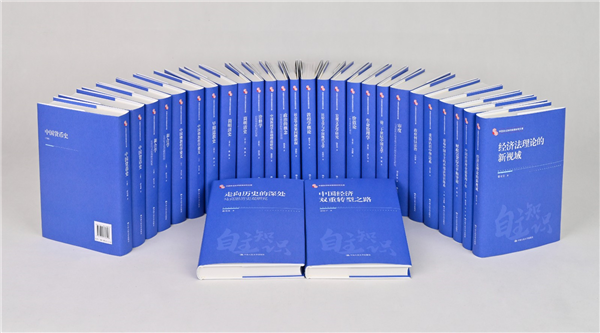
First review: Yang Yang
Second review: Liu Guangyu
Final review: Guo Xiaoming